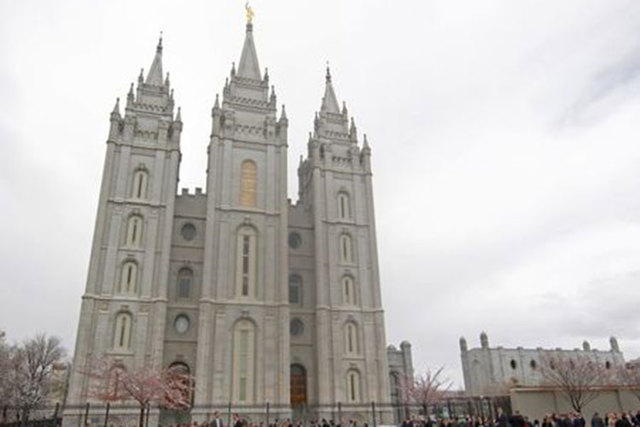Las Vegan, former LDS church member launches ‘Mormon Wikileaks’

A former Mormon launched a website Monday offering a secure portal for people who want to leak internal documents or videos about the Utah-based church.
The Mormon Wikileaks website seeks to build on a growing number of leaks that have shed light on the inner workings of the Church of Jesus Christ of Latter-day Saints and its position on controversial issues such as gay marriage.
The site was launched by Ryan McKnight, of Las Vegas, Nevada, who gained national attention in October after posting a series of inside conversations between senior Mormon church officials on a YouTube channel called “Mormon Leaks.”
“Our goal is, pure and simple, transparency,” McKnight said in an interview. “Sometimes people come across information through the course of their jobs that makes them feel uneasy or like it is something that church members deserve to know.”
He said the website provides an anonymous “avenue” for them to share it.
The website comes as digital information is easily shared and is modeled after Wikileaks, the international group that has collected and shared millions of government documents.
A spokesman for the Mormon church declined to comment on the new site. Church employees sign non-disclosure agreements.
McKnight grew up in the church, went on a mission and got married in a Mormon temple. About three years ago, at the age of 32, he became disillusioned by aspects of Mormon history, including the polygamous practices of early church leaders. He said he felt like he had been taught a “white-washed version of the truth.”
He stopped going to church in 2013 and had his name removed from the membership rolls a year later. He got involved in on-line forums of other questioning former Mormons looking for a place to talk.
In 2015, he said he helped bring widespread media attention to a memo that updated a church handbook detailing a revised position on same sex households in the aftermath of the legalization of gay marriage. Access to that handbook is usually reserved for church leaders.
The church took the controversial stance that those in a same-sex marriage should be considered apostates, and their children should not be blessed or baptized until they are 18. At that age they can be given the chance to disavow the practice of same-sex marriage and can request to join the church.
His involvement made him a go-to person for other interested leakers. In October, McKnight posted a series of 15 videos on a “Mormon Leaks” Youtube channel during the church’s annual General Conference meetings. The videos showed senior leaders of the church in private meetings being briefed on issues ranging from cybersecurity to medical marijuana.
In one 2012 meeting, former Utah Gov. Mike Leavitt met with the elders and talked about building and funding strong coalitions to fight same-sex marriage and abortion in state legislatures.
McKnight said he got “bombarded with messages” after those videos were posted, so he decided to ramp up the effort to build a website and assembled a team, including a web designer, two cyber security experts, and a social media person. He said the site will be operated by a non-profit organization and nobody will be paid a salary for their work with it.
In a forum for ex-Mormons on Reddit, McKnight posted recently that three people approached him and said a secure site would make them feel more comfortable sharing files, and that he hopes the site “tips that scale for them.”
“Other than that, this is an ‘if you build it they will come’ project,” he said.
He said he expects many of the leaks will be mundane, simply showing that every move in the church is not divinely ordained, as members are led to believe, but that in fact the church runs “very much like a business.”
Ryan Cragun, an associate professor of sociology who studies Mormonism at the University of Tampa, said many religious scholars are eager to learn more about the finances of the church which are “a black box.” The church owns many businesses and properties, but there is little public information available about them. Church members are expected to tithe 10 percent of their income.
Still, he said, many in-the-pews Mormons are “highly insulated” and unlikely to see any of the documents.
There is a hungry audience, though, among people who have left or are thinking of leaving the church. “For someone in the middle of a faith transition, such information is more fuel for the fire,” he said.